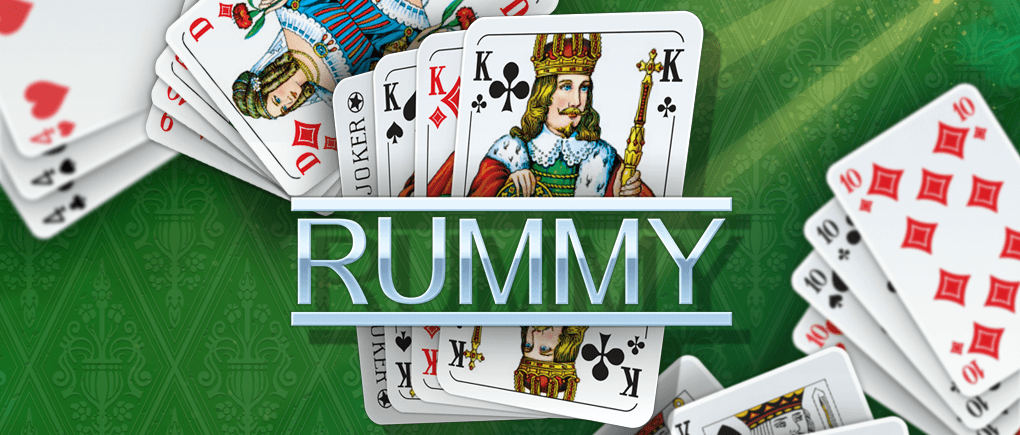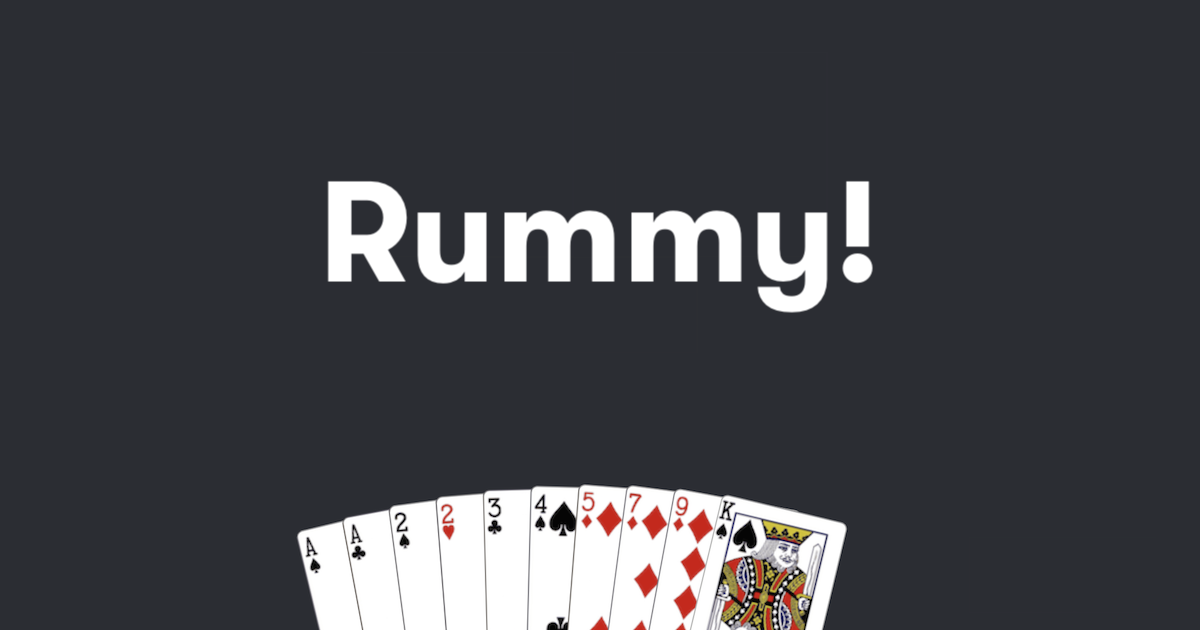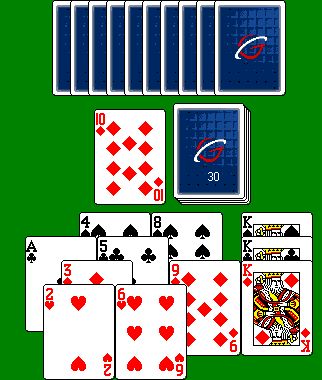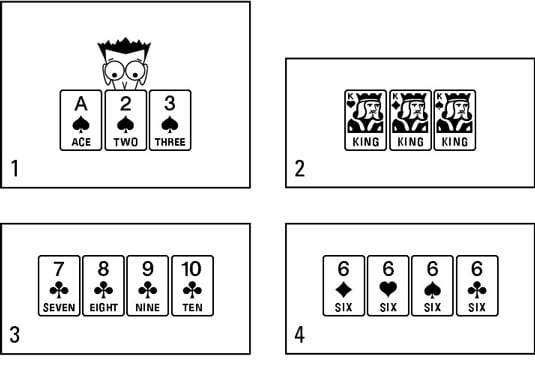Gin Rummy Discard Pile Rules
Card games originated in China and have been around for thousands of years. Eventually, they made their way over to Europe. One iteration of card games invented was the gin card game, which came with its own variations including gin rummy. While its history is unclear,
- Gin Rummy Discard Pile Rules Card Game
- Gin Rummy Discard Pile Rules
- Gin Rummy Discard Pile Rules Pdf
- Gin Rummy Discard Pile Rules For Beginners
- Gin Rummy Discard Pile Rules Cheat
- Gin Rummy Discard Pile Rules Free
This is a variation of Gin Rummy for three players. The goal of the game is to collect sets to earn points over several rounds. How to play Gin Rummy the card game. Here you will find the game rules for playing Gin Rummy the card game as well as variations on those classic rules.

Gin Card Game - What is Gin Rummy?
Gin rummy is a gin card game that came about in the 1800's. It was invented with the intention of being less spontaneous than knock rummy but faster than standard rummy or speed card games. According to John Scarne, a musician, and writer, it was derived from whiskey poker, but there is not a much factual basis for this theory.

Playing a gin card game is simple, easy and fun. Gin rummy is played with only one standard deck of cards. These cards are ranked from high to low with the king being the highest ranking card and the Ace card being the lowest ranking card. You win rummy by getting to a previously agreed upon the number of points before your opponent. Typically, this is 100 points. We have included a helpful glossary in case you are not very familiar with playing cards in the gin card game.
Glossary
Here are the definitions of some commonly used words when describing how to play a gin card game.
Melds
A group of cards that results in the player holding them earning points.
- Sets - a meld consisting of three or four cards with the same rank, such as an eight of hearts, an eight of diamonds and an eight of spades.
- Runs - a subset of meld consisting of three or more cards in a sequence of the same suit.
Knocking
Knocking means ending the play at your turn if you have no sets or runs after drawing. This is done by discarding one card face-down on the discard pile while exposing your whole hand, arranging them as best you can into sets and runs. You may not discard the card you just drew from the discard pile if applicable.
Deadwood
Deadwood means there are unmatched cards after knocking. The value of your total deadwood must be 10 points or fewer.
Going Gin
Knocking with no unmatched cards. This comes with a 20 point bonus while the other player scores nothing.
Undercut
When the knocker did not go gin, and the counts are equal, or the knocker's count is greater than his or her opponent's. The knocker scores the difference between the counts, if any, plus a 10 point bonus.
If there are two players, each player is dealt ten cards. As there are twelve face cards in a deck, it is possible to achieve 100 points and win the game with the first hand you are dealt. However, this is highly unlikely.
In gin rummy, face cards are worth ten points; numbered cards are given points based on their face value and aces are only worth one point. You are allowed a run of one ace of hearts, one two of hearts and one three of hearts. However, you cannot have a run of a queen of clubs, a king of clubs and an ace of clubs.
This is because the ace is the lowest card in this gin card game. You can knock at any point in the game, including on your first turn, as long as you have no more than ten deadwood points. Early in the game, it is most likely your knock will be to your advantage. Afterward, think of the casino and card themed party decorations for memorable events.
Gin Rummy Discard Pile Rules Card Game
Be the First to Knock.
Knocking early gives you the opportunity to catch your opponent with enough deadwood for you to score. Even knocking with 10 deadwood points early on in the game can give you an advantage before your opponent can undercut you. If you choose to wait for a better hand and not knock, then your opponent does, he will earn the difference between your two dead wood.
Don't Draw Discards Unless it Can Complete a Run.
The disadvantage of drawing from the discard pile if it won't complete a run for you is twofold.
- You lose the opportunity to see the next card in the deck which may complete your run.
- Your opponent will be able to see the card you drew and deduce which card you need to complete your run. For example, if you have a nine of hearts and you pick up a discarded nine of clubs, if your opponent draws a nine of spades, he or she will not discard this because then you will be able to achieve a run.
Watch Your Opponents Draw From the Discard Pile.
If your opponent picks up a five of spades and you want to know whether to discard of a four of spades or four of diamonds, discard the four of diamonds first. The four of diamonds may be the one card your opponent needs to make a run.
Hold on to High Pairs or Consecutive Cards.
It is common advice to discard higher value cards instead of lower value cards, so expect your opponent to do this if you have never played him or her before. The idea behind this is, one deadwood face card means your other nine cards must be melded to knock, and that would result in a weak knock.
Players hold on to the lower value cards to increase the chances of an early knock as mentioned in the first tip. However, if you hold on to yours during the first half of the game, you may be able to meld face cards if your opponent is using the strategy of discarding face cards. Holding onto high pairs gets riskier as the game goes on, however, so be careful.
Don't Make Weak Knocks Late in the Game.
By the time you reach the halfway point in the game, your opponent has probably gotten rid of the worst of his deadwood. If you knock with 10 points late in the game, you will very likely be undercut.
- As mentioned above, you will have a good idea of what card your opponent needs to meld, either via run or set.
- If you have a sharp memory, you may notice two queens have been discarded. If you have two queens in your hand and you are playing only one deck, you know these high-value cards will never meld, and you should discard them.
It is possible for gin rummy to end without a player winning. This happens when there are no cards left in the dealer's customized deck, so the players just start the game over. However, there are rules in place for if you are playing for money and the game comes to a conclusion with a winner. Once a player's cumulative score reaches 100 points, he or she receives an additional 100 point bonus.
If the loser did not win a single hand, the winner's bonus is 200 points. Additionally, each player adds 20 points for each hand they won. These additional points cannot be counted towards the 100 points necessary to win the game. After the bonuses have been summed up, the player with the lower score pays the winner an amount proportional to the difference between their scores.
Gin Rummy is a variation of traditional rummy, but it also has variations of itself. One example is straight gin. After shuffling, the opponents are required to play until one of them can go in. Knocking is not allowed.
Oklahoma Rummy
Oklahoma Rummy is a version of the gin card game, where the first upcard determines the maximum count at which a player can knock. If the upcard is a spade, the value of the hand you knock will double. If you have an eight of spades, you can knock with up to eight deadwood points in your hand and your points would double if you won the knock.
Single Match Rummy
This variation is played when the rounds continue until one player reaches 100 points in the gin card game.
Multi-Match Rummy
Multi-match Rummy occurs when match scores are reset at the beginning of each match until a player reaches the predetermined number of points, like 600.
Conclusion
Not only is it fun to play a rummy gin card game, but it is also intellectually stimulating, and you can use as much strategy as you would like in the game. If you are facing a new opponent, knowing common strategy helps because you can make decisions to mitigate the risk of him or her using those strategies until you are provided with information to the contrary.
Remember, knock early, only knock strong late in the gin card game, by the halfway point rid your hand of large dead wood, don't pull from the discard pile unless it completes a run and pays very close attention to your opponent's draws from the discard pile. You can play for cash in locations where gambling is legal, fake chips at a party or just for fun with no winner and no keeping score with a pencil and paper.
Gin Rummy is one of the most common card games in the world. The group of games titled Rummy consists of many variations and version (Example: Kalooki and Rummy 500) that share the general pattern of Traditional Rummy. Learn here rules, tips and strategies to be the best Gin Rummy player.
The Gin Rummy game is designed for groups of 2-4 players, and the object of the game is to form valid melds and to have the lowest amount of penalty points when the game is over. A meld can be a sequence of consecutive cards from the same suit, or a set of similar valued cards from different suits. In any case a meld will have at least three cards.
Melds can be formed in any turn. Each player draws a card (from the deck or discard pile) and discards an unnecessary card.
Unlike traditional online rummy, the number of cards dealt to each player changes according to the number of players. Two players will play Gin Rummy with 10 cards, whereas 3-4 players will play with 7 cards. An additional difference in the Gin Rummy game is the way the game ends.
Gin Rummy ends in one of the following three ways -
Gin - a crushing victory by one of the players. The winner was able to create valid melds from every card in their hand except for the last card that is discarded at the end of the turn. In this case, players will be penalized according to their deadwood count plus 25 penalty points.
Knock - one player forms valid melds from the majority of the cards in their hand where the deadwood count is ten at most. When a player knocks his or her opponents can add cards directly to the melds created by the Knocker. This may lead to victory by 'undercut'.
Undercut - the player who didn't knock can lay down his or her melds. If that player's total deadwood count is lower than that of the player who knocked, he or she will win by undercut. The player who knocked will be penalized with 25 points in addition to his or her deadwood count.
THE FOUR SUITS

1 point 2 points 3 points 4 points 5 points
6 points 7 points 8 points 9 points 10 points
10 points 10 points 10 points
In a 2 player game every player is dealt ten cards. In a three to four player game each player is dealt seven cards. The remaining cards form the deck are placed face down, and one open card is used as the first card of the discard pile.
The object of the game is to form as many melds from the cards in hand. A meld can be either a set or a run.

Apart from forming melds, players must try to reduce their deadwood count, or in other words to minimize the values of the cards that do not belong to any meld.
| A run consists of 3 or more consecutive cards of the same suit |
|---|
OR |
| A set consist of 3 or more cards of the same rank |
|---|
OR |
THE PLAY
A turn in Gin Rummy is divided into two parts that make up a standard turn, except for the last turn of a hand/game.
- Drawing from the deck or the top card of the discard pile.
- Throwing a card to the discard pile.
The game can end in one of three ways:
- Gin - players lay down all the cards in their hand in valid melds, and throws the last card into the knock area. When a player Gins other players cannot add cards to that player's melds.
- Knock - a player lays down valid melds and has a deadwood count that's equal or lower than ten. In this move as well the player throws a card to the knock area.
- Undercut - when a player knocks his or her opponents can lay down their melds and also add cards to the knocker's melds (but only to that player's original melds).
For example: a player knocked and laid down
| The knocker goes down with: |
|---|

The person playing next added 6H, meaning that the player who plays third will not be able to add 5H.
Through adding cards players can reduce their deadwood count, and therefore are rewarded for keeping the cards that the Knocker needed for his own melds.
The player who's next in line can lay down two melds and has JH and 6H
And two 4s. In this case the opponent can add his cards to the appropriate meld, thus lowering the number of penalty points from 24 to 4!
Undercut - if one of the player knocks, and an opponent has a lower deadwood count, that opponent will win while the Knocker will be penalized by 25 points.
If only 2 last cards are left in the deck, the discard pile is reshuffled and used as the new deck.
| Defeated (Penalty Points) | |
|---|---|
| Ginning | Sum of deadwoods + 25 penalty points. |
| Knocking | Sum of deadwoods minus knockers deadwoods. |
| Undercut | Sum of deadwoods minus undercutter's deadwoods. Knocker receives 25 extra penalty points. |
Gin Rummy Discard Pile Rules
GIN RUMMY STRATEGIES AND TIPSThe Rummy games family contains a variety of games which are all based on the players' skills and strategic abilities. Gin RummyGin Rummy Discard Pile Rules Pdf
is one of the more dominant and well known games in the family. In order to play Gin Rummy well and learn how to win, there are several rules that should be taken into account, and also strategic principles that, if adopted, will allow every player to improve his performance.Stay alert - Gin Rummy is a fast and dynamic game. As such, the momentum may shift between players in almost every turn. A player who stays focused for a long time will probably have a better chance of analyzing his or her opponent's status, will not wait for cards that were already thrown to the discard pile and will know when to get rid of high cards and more.
The discard pile - every turn players discard cards that they do not need into the discard pile. A player who tracks the cards thrown away will have two advantages. First, he or she will know what cards already left the game. Second, the player will have a clue as to what cards his or her opponents do not need.
Gin Rummy Discard Pile Rules For Beginners
Draw - Gin Rummy is played with only one deck of cards. Therefore it is important to remember the cards that were thrown away and to use opportunities for drawing cards that complete existing melds. One tip for the beginning of the game is that we recommend to draw from the deck in order to prevent one's opponents from knowing which cards he or she needs.
Throwing - at the end of every turn, players throw a card to the discard pile. Usually the card that's the least useful will be thrown, but since throwing cards provides information to competitors on the cards a player has in his or her hand, it is recommend to put some thought into what you throw. The further you are in the game, the higher the cards you should throw, this in order to reduce the potential deadwood count. If the player acting next in line picked up a card from a certain suit - we will not throw a consecutive card from the same suit in order to avoid helping our opponent to complete a meld, and also to allow us to add the card in case the opponent knocks.
A player who considers 'knocking' would best do this at an early stage of the game in order to reduce the risk of getting caught with an undercut if their opponent wins the game - which will result in 25 additional penalty points.
These were several Gin Rummy strategy tips that work in every Gin Rummy game, and may give you a significant advantage over your opponents towards winning the game. The more you play Gin Rummy online, the more tips and strategies you will be able to find. Use any and all of our Gin Rummy Strategy tips and you will become a top player in no time.
BEST SITES WHERE TO PLAY GIN RUMMY:
Gin Rummy Discard Pile Rules Cheat
- Register now, instantly receive $/€5 for free
- £20 Welcome Bonus to play fantastic games. Join now
- Virtual Horses, Blackjack, X-Factor and much more.
- Keno, Virtual Sports and so on. Best games platform
- Get 100% bonus up to £100 on your first deposit
- £175 welcome bonus. Over 140 games to try out
- €100 initial match bonus. Games and Scratchcards